
Interim data reveal favorable responses in patients with low-grade serous ovarian cancer treated with avutometinib plus defactinib, according to Susana N. Banerjee, MD.

Your AI-Trained Oncology Knowledge Connection!


Interim data reveal favorable responses in patients with low-grade serous ovarian cancer treated with avutometinib plus defactinib, according to Susana N. Banerjee, MD.
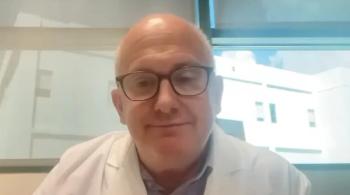
Brian Slomovitz, MD, MS, FACOG, notes that sometimes there is a need to substitute cisplatin for carboplatin, and vice versa, to best manage gynecologic cancers during the chemotherapy shortage.
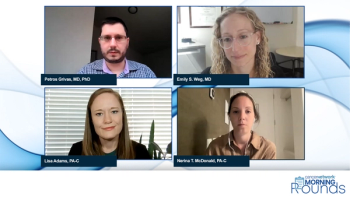
A brief discussion on optimal follow-up practices with patients on therapy for advanced bladder cancer.

Following a patient with bladder cancer who had a partial response to frontline therapy, panelists consider the branching treatment pathway.
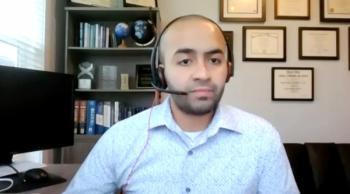
While there is a cisplatin shortage in the United States, the FDA has approved the importation of select chemotherapy drugs from China to help mitigate the scarcity of the agents.
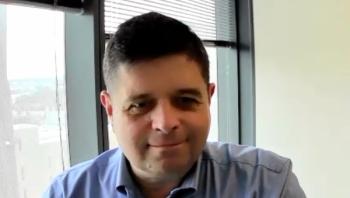
Brian Van Tine, MD, PhD, states that sitravatinib appears to be active and well tolerated among patients with dedifferentiated or well-differentiated liposarcoma.
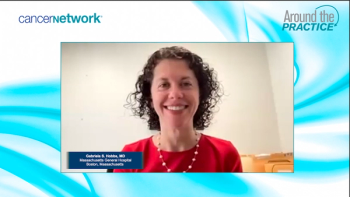
A broader overview of the role that JAK inhibitors play in patients with myelofibrosis and how that role has continued to evolve in the current treatment paradigm.

Kirollos Hanna, PharmD, BCPS, BCOP, FACCC, discusses what strategies are being used to treat patients with bladder cancer during the chemotherapy shortage.
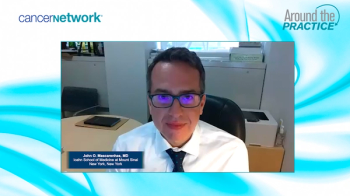
Moving on to review the first patient scenario of primary myelofibrosis, panelists elucidate the decisionmaking process when selecting JAK inhibitor therapy.
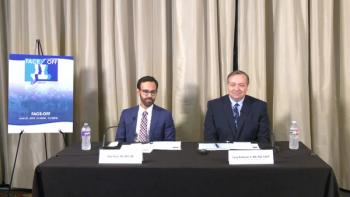
A comprehensive review of chronic myeloid leukemia olverembatinib data led by expert Kebede Begna, MD, from the Mayo Clinic team.

Adeel Khan, MD, MPH, MS, expert in multiple myeloma management, reviews data from the ALLIANCE A061202 trial of isatuximab + pomalidomide + dexamethasone in relapsed/refractory disease.

Specialists on colorectal cancer discuss the effect of MRD on monitoring strategies and adjuvant therapy decisions for patients with colorectal cancer.
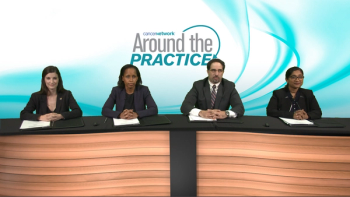
The expert panel overviews factors to consider with bispecific antibodies and offers closing insights on unmet needs in the multiple myeloma treatment space.
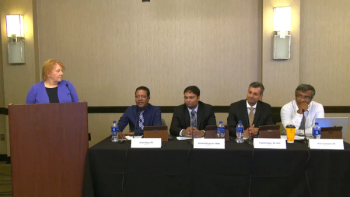
Experts from the Mayo Clinic and UT Southwestern share insight on the CARTITUDE-4 study and ciltacabtagene autoleucel in the second cross Q&A session.

Brian Van Tine, MD, PhD, also discusses how the treatment of desmoid tumors has evolved following data supporting the use of sorafenib in this population.

Following a review of the retrospective analysis of PACE, experts reflect on its importance in understanding the risk of arterial occlusive events with ponatinib.

An overview colorectal cancer clinical trials studying early intervention based on MRD positivity.
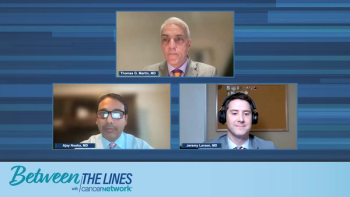
Thomas Martin, MD; Ajay Nooka, MD; and Jeremy Larsen, MD, share closing thoughts on the evolving landscape of cytokine release syndrome management in relapsed/refractory multiple myeloma.

Dostarlimab plus chemotherapy produces notable benefits among patients with advanced, mismatch repair deficient endometrial cancer in the phase 3 RUBY trial.
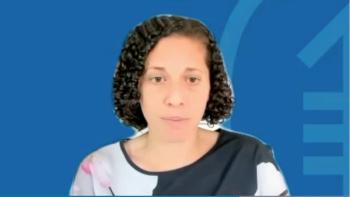
CAR T-cell therapies and immunotherapy agents may offer up new options and even become standard of care in certain sarcoma subtypes.
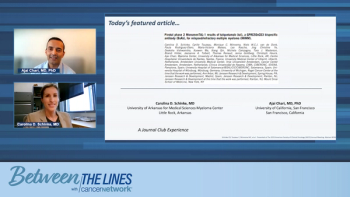
Closing out their program on relapsed/refractory multiple myeloma, Ajai Chari, MD, and Carolina Schinke, MD, consider optimal treatment strategies in the current landscape and look toward future directions in care.
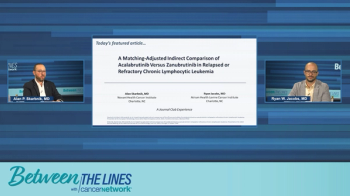
Alan Skarbnik, MD, and Ryan Jacobs, MD, review efficacy data from the indirect comparison study of acalabrutinib versus zanubrutinib in relapsed/refractory chronic lymphocytic leukemia.
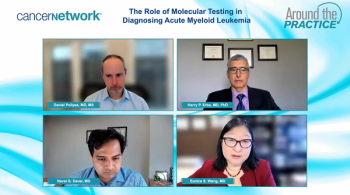
Experts on acute myeloid leukemia offer closing thoughts and discuss emerging treatments in the field.

The expert panel provide clinical insights on which patients with AML may benefit the most from treatment with menin inhibitors.

The panel of experts share their thoughts on where menin inhibitors will offer the most benefit in the overall treatment regimen for patients with AML.

Focused discussion on key clinical trial data behind currently available BTK inhibitors for patients with relapsed/refractory chronic lymphocytic leukemia.
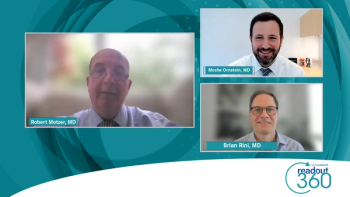
The panel highlights novel agents under investigation for the treatment of clear cell renal cell carcinoma.

There are several novel treatments that may be beneficial in several sarcoma subtypes including CAR T-cell therapies and immune checkpoint inhibitors, according to Sandra P. D’Angelo, MD.

Moshe Ornstein, MD, reviews the design and efficacy and safety data from the phase 3 CONTACT-03 study in metastatic renal cell carcinoma.
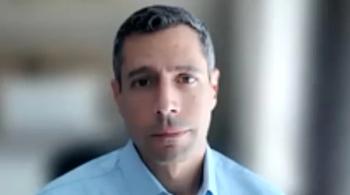
Recommendations penned by the American Society of Clinical Oncology and Society for Gynecologic Oncology may be critical in managing the ongoing chemotherapy shortage, according to Michael Ganio, PharmD, MS, BCPS, FASHP.